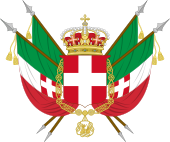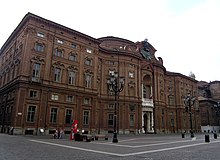
The Sejm, officially known as the Sejm of the Republic of Poland, is the lower house of the bicameral parliament of Poland.
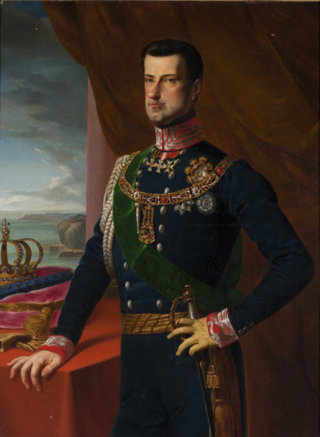
Charles Albert was the King of Sardinia and ruler of the Savoyard state from 27 April 1831 until his abdication in 1849. His name is bound up with the first Italian constitution, the Albertine Statute, and with the First Italian War of Independence (1848–1849).

A member of parliament (MP) is the representative in parliament of the people who live in their electoral district. In many countries with bicameral parliaments, this term refers only to members of the lower house since upper house members often have a different title. The terms congressman/congresswoman or deputy are equivalent terms used in other jurisdictions. The term parliamentarian is also sometimes used for members of parliament, but this may also be used to refer to unelected government officials with specific roles in a parliament and other expert advisers on parliamentary procedure such as the Senate parliamentarian in the United States. The term is also used to the characteristic of performing the duties of a member of a legislature, for example: "The two party leaders often disagreed on issues, but both were excellent parliamentarians and cooperated to get many good things done."
Bicameralism is a type of legislature that is divided into two separate assemblies, chambers, or houses, known as a bicameral legislature. Bicameralism is distinguished from unicameralism, in which all members deliberate and vote as a single group. As of 2022, roughly 40% of the world's national legislatures are bicameral, while unicameralism represents 60% nationally and much more at the subnational level.
Unicameralism is a type of legislature consisting of one house or assembly that legislates and votes as one. Unicameralism has become an increasingly common type of legislature, making up nearly 60% of all national legislatures and an even greater share of subnational legislatures.

The Statuto Albertino was the constitution granted by King Charles Albert of Sardinia to the Kingdom of Sardinia on 4 March 1848 and written in Italian and French. The Statute later became the constitution of the unified Kingdom of Italy and remained in force, with changes, until 1948. Charles Albert did not want to grant a Constitutional Charter so he attempted to maintain as much power as he could even though the Statute marked the end of his absolute monarchy.

The Senate of the Republic, or simply the Senate, is the upper house of the bicameral Italian Parliament, the lower house being the Chamber of Deputies. The two houses together form a perfect bicameral system, meaning they perform identical functions, but do so separately. Pursuant to the Articles 57, 58, and 59 of the Italian Constitution, the Senate has 200 elective members, of which 196 are elected from Italian constituencies, and 4 from Italian citizens living abroad. Furthermore, there is a small number of senators for life, either appointed or ex officio. It was established in its current form on 8 May 1948, but previously existed during the Kingdom of Italy as Senato del Regno, itself a continuation of the Senato Subalpino of Sardinia established on 8 May 1848. Members of the Senate are styled Senator or The Honourable Senator and they meet at Palazzo Madama, Rome.

The Chamber of Deputies is the lower house of the bicameral Italian Parliament, the upper house being the Senate of the Republic. The two houses together form a perfect bicameral system, meaning they perform identical functions, but do so separately. The Chamber of Deputies has 400 seats, of which 392 will be elected from Italian constituencies, and 8 from Italian citizens living abroad. Deputies are styled The Honourable and meet at Palazzo Montecitorio.

The Italian Parliament is the national parliament of the Italian Republic. It is the representative body of Italian citizens and is the successor to the Parliament of the Kingdom of Sardinia (1848–1861), the Parliament of the Kingdom of Italy (1861–1943), the transitional National Council (1945–1946) and the Constituent Assembly (1946–1948). It is a bicameral legislature with 600 elected members and a small number of unelected members. The Italian Parliament is composed of the Chamber of Deputies, as well as the Senate of the Republic.
The Aventine Secession was the withdrawal of the parliament opposition, mainly comprising the Italian Socialist Party, Italian Liberal Party, Italian People's Party and Italian Communist Party, from the Chamber of Deputies in 1924–25, following the murder of the deputy Giacomo Matteotti by fascists on 10 June 1924.
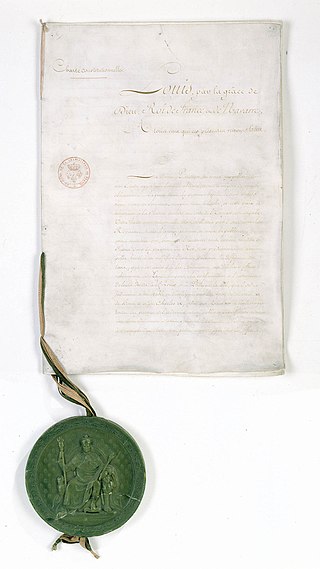
The French Charter of 1814 was a constitutional text granted by King Louis XVIII of France shortly after the Bourbon Restoration, in form of royal charter. The Congress of Vienna demanded that Louis bring in a constitution of some form before he was restored. After refusing the proposed constitution, the Constitution sénatoriale, set forth on 6 April 1814 by the provisional government and the Sénat conservateur, Louis Stanislas Xavier, count of Provence, bestowed a different constitutional Charter, on 4 June 1814. With the Congress of Vienna's demands met, the count of Provence was officially named Louis XVIII, and the monarchy was restored.

The Council of Ministers is the principal executive organ of the Government of Italy. It comprises the President of the Council, all the ministers, and the Undersecretary to the Prime Minister. Deputy ministers and junior ministers are part of the government, but are not members of the Council of Ministers.

The Senate of the Kingdom of Italy was the upper house of the bicameral parliament of the Kingdom of Italy, officially created on 4 March 1848, acting as an evolution of the original Subalpine Senate. It was replaced on 1 January 1948 by the present-day Senate of the Republic. All of its members were appointed by the King.

The Subalpine Senate was the upper house of the Kingdom of Sardinia and one of the two houses of its bicameral parliament, the other being the Chamber of Deputies. It was set up in 1848 following the fusion of the Savoyard states. It became the Senate of the Kingdom of Italy upon the unification of Italy in 1861. It is the direct ancestor of the present Italian Senate. Its name was a reference to the Napoleonic Subalpine Republic.
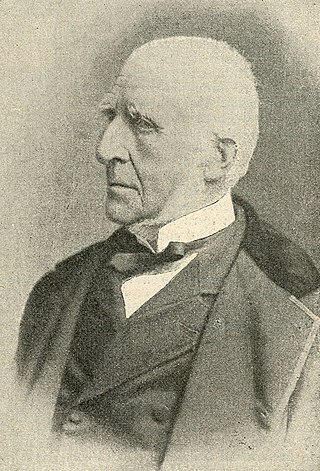
Luigi Ferraris was an Italian politician, who was Senator and minister in the Kingdom of Italy.

The Chamber of Deputies of the Kingdom of Italy was the main legislative body of the Kingdom of Italy descended from the lower house of the Kingdom of Sardinia, but supplemented with deputies from territories captured during the Second Italian War of Independence and the Expedition of the Thousand. Along with the Senate of the Kingdom of Italy, it formed the Parliament of the Kingdom of Italy from 1861 until 1939.

The Parliament of the Kingdom of Italy was the bicameral parliament of the Kingdom of Italy. It was established in 1861 to replace the Parliament of the Kingdom of Sardinia and lasted until 18 June 1946, when it was replaced by the present-day Italian Parliament. It was formed of a lower house and an upper house.

The history of the Costa Rican legislature is long and starts from even before its formal independence from the Spanish Empire. Costa Rica is one of the world's oldest democracies, thus, its parliamentary history dates back several centuries.

The proclamation of the Kingdom of Italy happened with a normative act of the Savoyard Kingdom of Sardinia — the law 17 March 1861, n. 4761 — with which Victor Emmanuel II assumed for himself and for his successors the title of King of Italy. 17 March is commemorated annually by the anniversary of the unification of Italy, a national holiday established in 1911 on the occasion of the 50th anniversary, and also celebrated, in the Republican era, in 1961 and 2011.

Giovanni Ricci was an Italian naval captain and politician.
